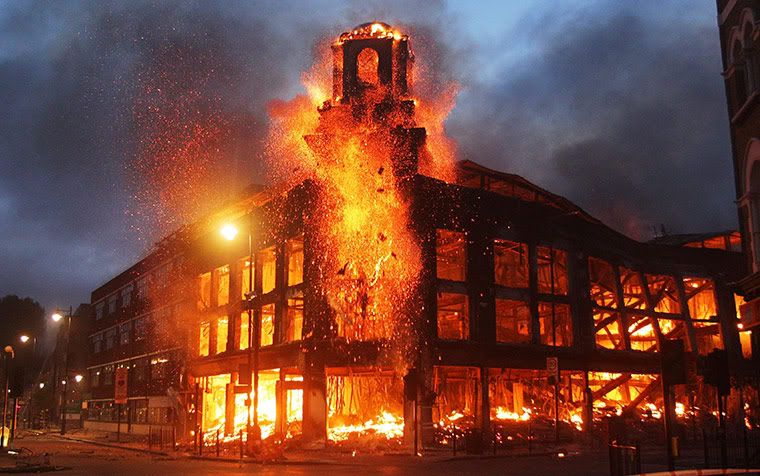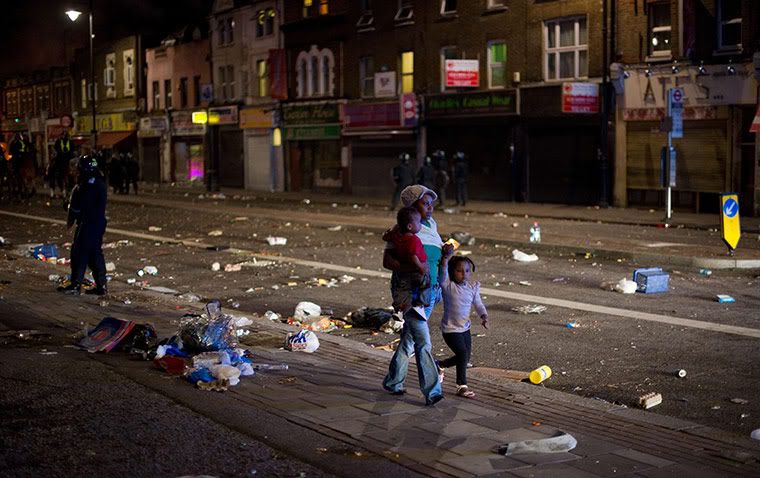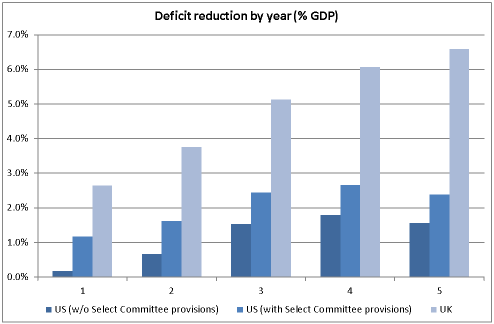It's been 26 years since I last remember police cars speeding up my road to the riots at the Broadwater Farm estate in North London. Then - just like last night - a policing incident had been the spark that ignited latent social and political tensions that had been building for years. The previous Tottenham riot wasn't an isolated incident: prior to that there had been riots in Brixton in South London, Toxteth in Liverpool, and Handsworth in Birmingham. And last night the same scenes returned to my beloved city.

Such looting and violence is never justifiable. When it happens in the poorer neighbourhoods, it's exactly those who can least afford to cope with it who have to deal with the carnage and aftermath - the closed shops, heavy police presence, the sense of fear and the smell of charred buildings. Fortunately no one seems to have been seriously injured last night; but looting is not a legitimate form of wealth redistribution.

But apart from the moral or legal condemnations, what are the connections between the riots last night and the 1980s when these were almost a regular occurence? Surely, beyond individual morality or neighbour policing there is a clear cut connection...
We've returned to the 1980s agenda of Thatcherism: public service, benefit cuts and unemployment, with all the social consequences that follow
"There Will Be Riots"
There are many factors which made this summer of trouble foreseeable. Beyond and above the world recession, the key factor provoking trouble across Europe, especially in Greece, has been the sudden removal of benefits and social support for the poorest segments of society.
For all its faults, New Labour fought long and hard to provide investment, infrastructure, training and income support for excluded groups, especially young black men in the inner cities. Britain in the twenty years since Thatcherism and the Scarman report on the Brixton riots paid special attention to job opportunities, youth activities and support for the most excluded parts of society.
But since last year the Coalition Government enabled, in its Comprehensive Spending Review, the biggest cuts in public expenditure in 70 years, underprivileged youth has been particularly hit, as the video below - made before the riots - makes amply clear
As the speaker at the end says:
"There will be Riots"
A year ago I pointed out how unequally the austerity measures were hitting different sections of society:
The revered Institute of Fiscal Studies calculates the bottom 10% will, on average, lose about 5.5% of their net income compared to roughly 4.5% for the top 10%.
Let us remember that the 5.5 per cent cut will affect people on very tight budgets, who can barely feed themselves healthily. Whereas the cuts on the top 10 per cent will result in fewer luxuries being bought.
So those Chickens are coming home to roost. It's not condoning criminal activity to show how economic austerity has social consequences. Indeed it would be immoral NOT to point it out. And the factors here are obvious.
1. A massive rise in Youth Unemployment
2. The Closure of facilities for young people
3. The Removal of the EMA grant which have 16-18 years a weekly sum for remaining in education.
4. A rise in VAT (sales taxes) and energy price hikes
If the Brixton or Poll Tax Riots are anything to go by, there's a good chance this event will stir the government into realising how their economic policies are fomenting social unrest. We don't have a Tea Party here, and the Coalition - weakened by the Murdoch scandal - will probably not be able to pursue its destructive austerity measures.
And if you think your deficit cutting is bad, just compare it with ours

Back to the Future: A Recipe for Trouble
London is generally a peaceful safe city. I live in the centre, and - as I told American friends visiting yesterday - I rarely fear walking in any of its streets. But in the last few weeks, as the school holidays have arrived, I have noticed more bored teenagers roaming around. Their job prospects are poor to non existent. Their grants have been cut. Their youth centres closed. Many have parents who are stressed trying to manage the rising prices and decreasing incomes or depressed thanks to unemployment, and probably having to leave the city because of the cap in housing benefit.
How can one assume than you treat the poorest 5 per cent like this with impunity? When kids are bored, depressed, hopeless - that's a recipe for trouble.
Though no one would admit the economic connections with rioting in the 80s, the Thatcher government commissioned the Scarman report that did conclude economic prospects had a great deal of impact on social cohesion and law and order.
I wonder how long it will take politicians to catch up with the past.
3:26 PM PT: 1, More on the police shooting. It seems the bullet lodged in the policeman's radio during the fatal shooting of Mark Duggan last night was police issue.
2. Things are like 1985, but also very different in Tottenham
The television producer and commentator
David Akinsanya was in Tottenham in the early hours of Sunday morning. He also covered some of the 1980s riots as a reporter.
"There are and there aren't similarities between what happened and earlier riots. In those days as a black youth you could be walking down the street, the police would bundle you into a van and nobody would see you for three days. That doesn't happen now. The black community is asking the police to get on top of gun crime, that's another change
And here's David Lammy, the MP for the consituency, giving his take on how this differs from the 80s.
And not, neither he, Diane Abbott, Trevor Philips nor the other senior Black politicians in London who have spoken in these terms UK equivalents to Cornel West.


